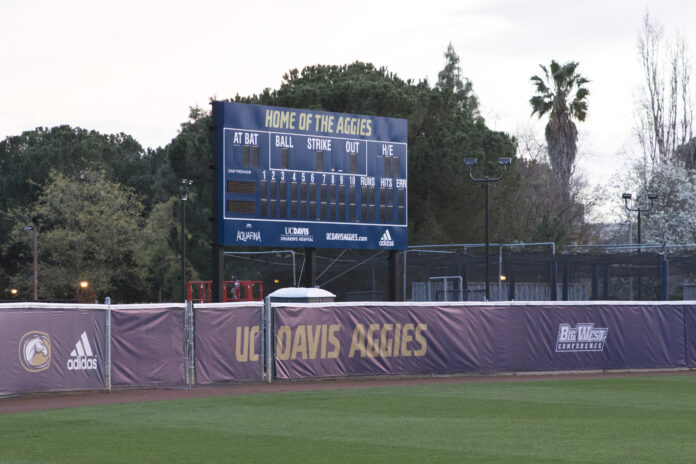The entire NCAA is feeling the effects of the latest COVID-19 outbreak
By KATHERIN RAYGOZA — sports@theaggie.org
As we enter 2022, the omicron variant of COVID-19 has created new obstacles and challenges for athletes all across the globe. Despite the emergence of COVID-19 almost two years ago, many athletes have recently been experiencing a lot of similar feelings as they did in 2020. Once again, the National Collegiate Athletic Association (NCAA) has updated their protocols and has gone as far as canceling a few games due to the easily transmissible omicron variant.
During the first few days of January, the NCAA released new guidelines for winter sports during the pandemic. Since the Centers for Disease Control and Prevention has updated their protocols, the NCAA has created a 2022 Winter Training and Competition document.
“The omicron variant has presented another surge of cases across the country,” NCAA Chief Medical Officer Brian Hainline said. “This guidance was designed to align with the latest public health directives. Given how the pandemic continues to evolve, it’s important that staff on member campuses continue to work with their local and state health officials on protocols most suitable for their locations.”
One of the biggest changes includes that the NCAA COVID-19 Medical Advisory Group developed a “new” definition of fully vaccinated. Being fully vaccinated now means that athletes and coaches must have all of the booster shots. A third shot is required within two months of receiving the Johnson & Johnson vaccine, five months after receiving the Pfizer vaccine or six months of receiving the Moderna vaccine.
“The omicron variant has presented another surge of cases across the country,” NCAA chief medical officer Brian Hainline said. “This guidance was designed to align with the latest public health directives. Given how the pandemic continues to evolve, it’s important that staff on member campuses continue to work with their local and state health officials on protocols most suitable for their locations.”
The NCAA also shortened the amount of days individuals must quarantine. Athletes are allowed to quarantine for only five days if they tested positive, and if on the sixth day, they no longer are showing signs of symptoms, they can return while wearing a mask. If on the preceding five days they are tested negative, they can return to athletic activities permitted without a mask, but those that have been around that person must test within five days.
Five college football bowl games were canceled, one that featured UCLA and North Carolina State. The game between the Bruins and the Wolfpack was set to take place on Tuesday, Jan. 4 at Petco Park in San Diego, but UCLA announced internal COVID-19 protocols prohibited the team from playing. Seven more bowl games were impacted because of the rise in COVID-19 cases. More than 140 D-1 mens’ basketball teams have had their games canceled. Across the U.S., omicron has impacted the rest of college winter sports as well.
“We are extremely grateful to the Holiday Bowl, students, fans, sponsors, and the people of San Diego for their support this week,” Martin Jarmond, a UCLA athletic director, said in a statement on Twitter. “We are deeply disappointed for our young men in the football program that worked extremely hard for this opportunity. My heart goes out to them. The health and safety of our student-athletes will always be our North Star.”
As for the UC Davis Aggies, the mens’ and womens’ basketball season has faced the challenge of canceling their games. So far, both teams have canceled four of their games. As for their latest games, the UC Davis men were scheduled on Jan. 13 against the Roadrunners in Bakersfield at 7 p.m., while the women were set to play in Davis at 6 p.m., but both were canceled due to COVID-19 health and safety protocols CSU Bakersfield program.
Despite having new rules, the NCAA is planning on continuing other conference games as long as the surveillance of COVID-19 testing is low within their communities. Although it may presume that winter sports will not have a season, it has been assured that with proper rules, COVID-19 cases can be maintained so that the season can start anew.
Written by: Katherin Raygoza — sports@theaggie.org




